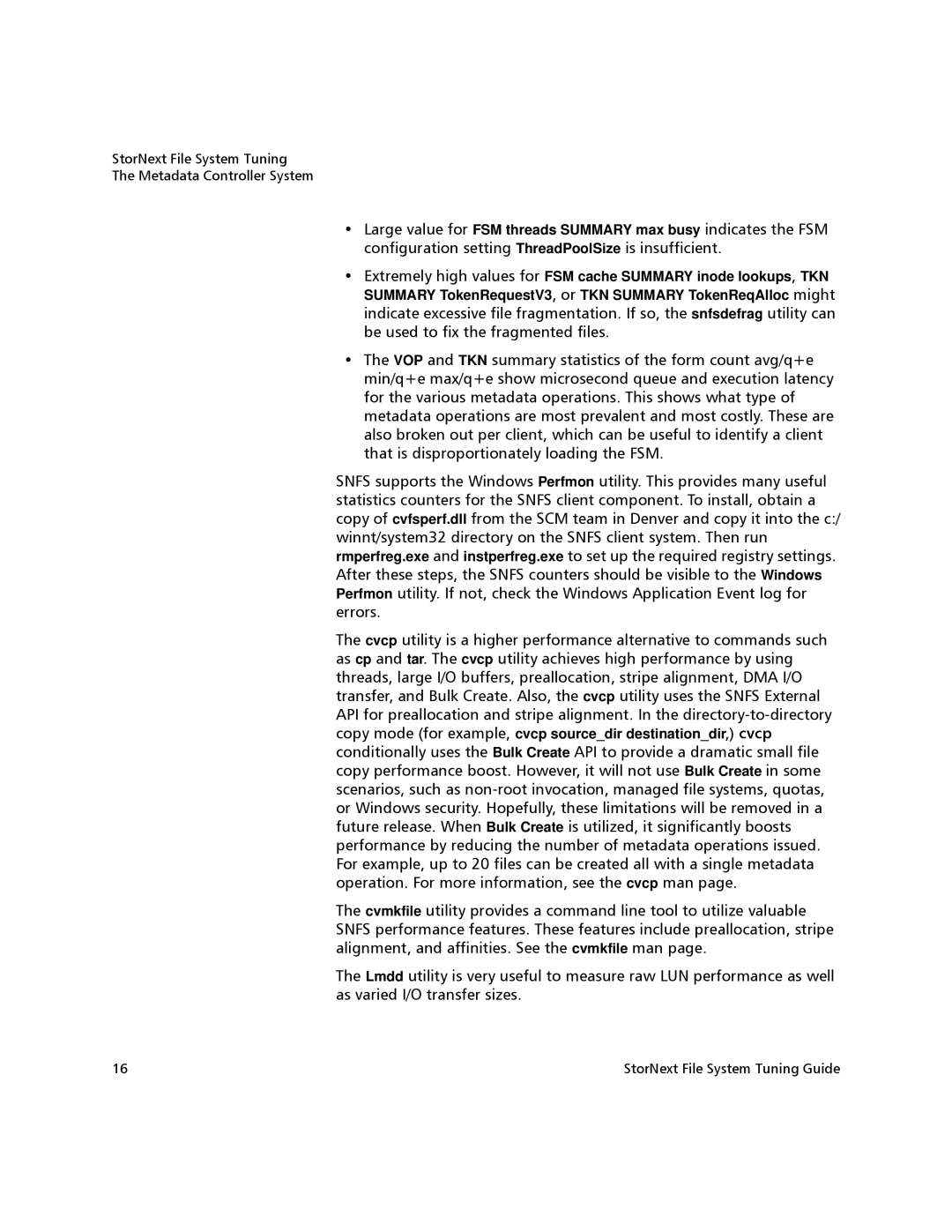StorNext File System Tuning
The Metadata Controller System
•Large value for FSM threads SUMMARY max busy indicates the FSM configuration setting ThreadPoolSize is insufficient.
•Extremely high values for FSM cache SUMMARY inode lookups, TKN SUMMARY TokenRequestV3, or TKN SUMMARY TokenReqAlloc might indicate excessive file fragmentation. If so, the snfsdefrag utility can be used to fix the fragmented files.
•The VOP and TKN summary statistics of the form count avg/q+e min/q+e max/q+e show microsecond queue and execution latency for the various metadata operations. This shows what type of metadata operations are most prevalent and most costly. These are also broken out per client, which can be useful to identify a client that is disproportionately loading the FSM.
SNFS supports the Windows Perfmon utility. This provides many useful statistics counters for the SNFS client component. To install, obtain a copy of cvfsperf.dll from the SCM team in Denver and copy it into the c:/ winnt/system32 directory on the SNFS client system. Then run rmperfreg.exe and instperfreg.exe to set up the required registry settings. After these steps, the SNFS counters should be visible to the Windows Perfmon utility. If not, check the Windows Application Event log for errors.
The cvcp utility is a higher performance alternative to commands such as cp and tar. The cvcp utility achieves high performance by using threads, large I/O buffers, preallocation, stripe alignment, DMA I/O transfer, and Bulk Create. Also, the cvcp utility uses the SNFS External API for preallocation and stripe alignment. In the
The cvmkfile utility provides a command line tool to utilize valuable SNFS performance features. These features include preallocation, stripe alignment, and affinities. See the cvmkfile man page.
The Lmdd utility is very useful to measure raw LUN performance as well as varied I/O transfer sizes.
16 | StorNext File System Tuning Guide |
